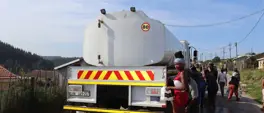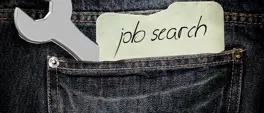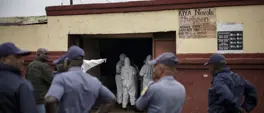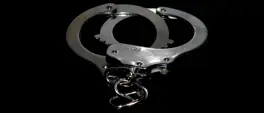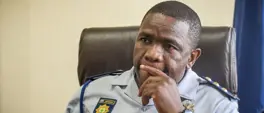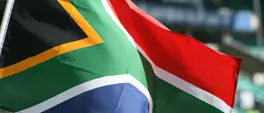Minister Steenhuisen’s
alarming address to South Africa on 21 November was full of misinformation. Misinformation on a topic so serious, it has brought about a state of national disaster.
Here is some fact checking for the minister, his advisors, his department, and his speech writer.
MISINFORMATION 1
According to Steenhuisen, the licensed manufacturers and distributors of terbufos are “all under strict licensing and supervision with strict licensing obligations and strict supply chain management conditions.”
FACTCHECK
The Department of Agriculture, Land Reform and Rural Development’s (DALRRD)
list of banned or restricted use of agrochemicals has not been updated since 2017, and terbufos does not appear on that list. Nothing at all has been implemented across the supply chain to regulate, track, monitor, or enforce regulations regarding terbufos.
The labels do not comply. In South Africa, the label is the law. In other words, the regulations are written in such a way as to indemnify the manufacturers against harm or poisoning by reverting to whether the instructions on the label were followed. Restricted use products should state “Restricted Use” on the label and specify the restrictions and the hazards according to the World Health Organization (WHO) and the Globally Harmonized System of Classification and Labelling of Chemicals (GHS).
We request that Minister Steenhuisen verifies the labels of the five registered terbufos products that he says are following their “strict licensing obligations”.
If the manufacturers have not added the legal requirements to the labelling, is that not a criminal offence? Especially if now, in light of the deaths of children?
Is there no penalty for the noncompliant big multinationals responsible for importing and distributing this poison? Are there only penalties for spaza shops? UnPoison has noted that none of the labels on terbufos sold legally are compliant, and information has been downloaded from each of the manufacturer's websites, and this shows them as non-compliant with the regulations.
Additionally CropLife’s guide on
Responsible Pesticide Use does not mention Restricted Use Products in their guidelines, so how can industry or the “authorised users” be following “strict supply chain management guidelines”? If CropLife, the organisation responsible for the training and guidelines on responsible pesticide use haven't educated their members on the regulatory requirements for selling and distributing terfufos, how on earth should spazashop owners and street vendors know?
MISINFORMATION 2
“We are working very closely with CropLife who are conducting independent laboratory tests”
FACTCHECK
Minister Steenhuisen seems to know nothing about the industry he is now responsible for governing. CropLife is a trade organisation that represents the manufacturers, suppliers, and distributors of pesticides. CropLife’s activities include lobbying, research, training, and strategic partnerships with governments and agencies like the Food and Agricultural Organization of the United Nations (UN FAO).
CropLife’s members are giant corporations like Bayer, Monsanto, Syngenta, BASF, Corteva, etc. It also represents all the companies that manufacture terbufos.
CropLife South Africa has enormous influence over the DALRRD and “helps” to provide technical expertise to the department, which includes shaping policy and the regulatory framework for agrichemicals, as well as privately housing the national database of registered pesticides which can only be accessed by paying members.
Their role in the sector strategically promotes and benefits their members’ products and profits. So, it is completely impossible for any test or report done by CropLife to ever be independent.
If Minister Steenhuisen was serious about protecting the South African public and investigating the source of the poisonings, he would be working with independent experts and laboratories. Not the very organisation whose mandate it is to promote and protect the interests of the manufacturers of terbufos.
MISINFORMATION 3
“The terbufos found does not emanate from local manufacturers”
FACTCHECK
The only basis for this is an industry claim for which so far no evidence has been produced.
Minister Steenhuisen says he is “working closely with the manufacturers” of the poison, as if they are the best candidates (with no conflict of interest) to assist the department with the whodunnit - and seeing as the DALRRD is “working closely with CropLife on independent tests”, another member of the trusted advisory panel (who also have no conflict of interests other than manufacture, sales and distribution of pesticides including terbufos), it raises questions about this statement.
Minister Steenhuisen is the Minister of Agriculture, Land Reform and Rural Development for all South Africans - he is not the Minister for the pesticide industry.
UnPoison has many university departments and a choice of independent labs and researchers in our networks, all of whom would gladly assist you to conduct true independent research.
MISINFORMATION 4
“Terbufos is coming in from neighbouring countries”
FACTCHECK
All other Southern African Development Community (SADC) countries (except Lesotho, landlocked by us and Eswatini, that has little to no regulations) have banned terbufos. Botswana’s ban will be the last and take effect this December. Zimbabwe has not imported terbufos since 2000.
To add insult to this statement, Steenhuisen again refer to the “independent tests” by CropLife to confirm this. The pesticide industry is doing the tests to confirm that it is not their product. This is a conflict of interest.
MISINFORMATION 5
In his speech, Steenhuisen refers to a clamp down on biosecurity, going as far as engaging the services of the South African National Defence Force (SANDF) to secure the borders against biological products.
FACTCHECK
The poisons that have killed these children are highly hazardous pesticides - not biological products. This seems like the Minister is being bamboozled, to deflect all culpability away from their products.
These tragedies had nothing to do with biosecurity. These are chemicals and there is nothing biological about them. The hubs South Africa really needs are the Multi-Stakeholder Committee on Chemicals Management (MCCM), and to reinstate Interdepartmental Committee for the Protection of Man Against Poisons (INDAC), which was an independent committee that reviewed pesticide registrations in South Africa.
MISINFORMATION 6
Biological outbreaks impair our export
FACTCHECK
While this is not untrue, highly hazardous pesticides like terbufos also impairs our ability to export our produce. The use of banned highly hazardous pesticides on our produce. terbufos has been banned in the EU since 2006, and it is banned by our neighbours.
Banning highly hazardous pesticides would actually boost our export opportunities. It turns out that the countries we want to export our produce to actually place a value on the lives of their citizens, and protect them from the long-term harm of these poisons.
They do this by not only banning the use of these poisons, but also prohibiting the import of produce farmed with the very highly hazardous pesticides like terbufos that South Africa is poisoning her people with.
Minister Steenhuisen, we urge you to work for your people, and not for the giant multinationals that profit from dumping poisons that are not permitted in their countries of origin.
UnPoison suggests the Minister Steenhuisen and the media investigate:
- How many compliance inspectors there are in Act 36 in each province and a definition of their roles;
- The compliance inspectors' reports and audits of Terbufos distributors since August 2023;
- The sales and distribution data of Terbufos sales since August 2023;
- Compliant labels and Safety Data Sheets of any legally registered terbufos products specifically showing it is a Restricted Use Product;
- A DALRRD list of restricted-use products in South Africa with terbufos on it;
- Any notices sent out by DALRRD or CropLife to manufacturers and distributors with guidelines on selling restricted-use pesticides. Until this spotlight has sent the industry spinning , terbufos could be found widely on shelves of agricultural coops; and
- An audit of CropLife's training materials and guidelines to verify where they advise their members on the protocols of Restricted Use Products.
Based on the above, it is clear there has not been strict regulation of Restricted Use products, nor has there been monitoring or enforcement.
The minister’s speech was full of misinformation that protects the DALRRD, CropLife, and the terbufos manufacturers from taking responsibility for the deaths of these children, as well as the harms from the chronic long-term exposure of this deadly poison on farm workers, farm town residents, and the public who are the consumers of locally produced and sold maize, potatoes, and citrus.
Lastly, if Europe and our SADC neighbours can grow their citrus, maize, and potatoes without terbufos, why can’t we?
UnPoison is an advocacy NPO that specialises in the regulatory framework governing pesticides, as well as a high-level expert network of over 70 top experts, including local and international university science departments, toxicologists, doctors, lawyers, scientists, agronomists, manufacturers, farmers, agricultural standards and certifiers, farmworker organisations, unions, researchers and NGOs.
UnPoison's members participate in national, SADC, regional, and international committees contributing to pesticide research, policy, and standards at every level.

